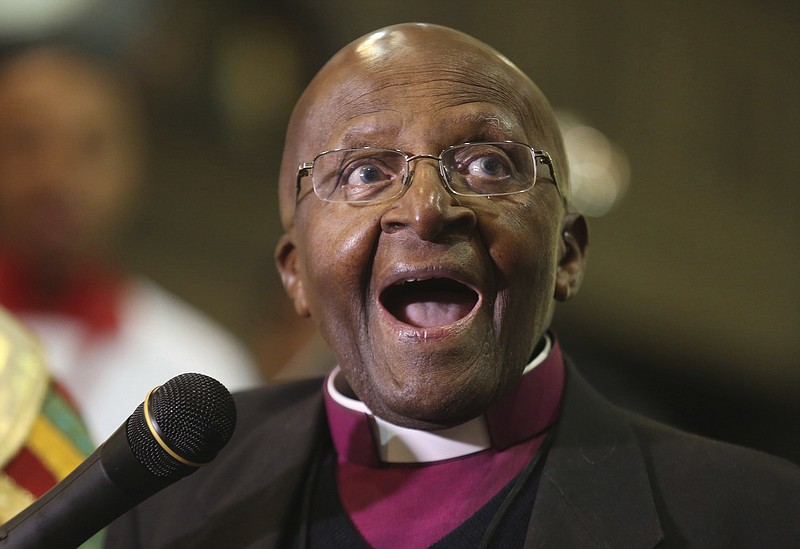JOHANNESBURG (AP) - South African anti-apartheid campaigner Archbishop Emeritus Desmond Tutu has admitted himself to a Cape Town hospital for treatment of a recurring infection, according to his family foundation.
The 84-year-old Nobel Peace Prize winner is expected to remain in the hospital for a week or two, said the statement issued by the foundation late Wednesday.
Tutu underwent similar treatment last year, when he was hospitalized several times.
Updated information will be released when it is available, said the archbishop's daughter, Thandeka Tutu-Gxashe.
Tutu became the first black archbishop of Cape Town where he was an outspoken opponent of South Africa's apartheid regime, which enforced a harsh system of racial discrimination. Tutu was awarded the Nobel Peace Prize in 1984.
Since the end of apartheid in 1994, Tutu has campaigned for human rights, to fight HIV/AIDS, racism, sexism, homophobia and transphobia. He also chaired the Truth and Reconciliation Commission that investigated atrocities during the apartheid regime and granted amnesty to some accused perpetrators.
